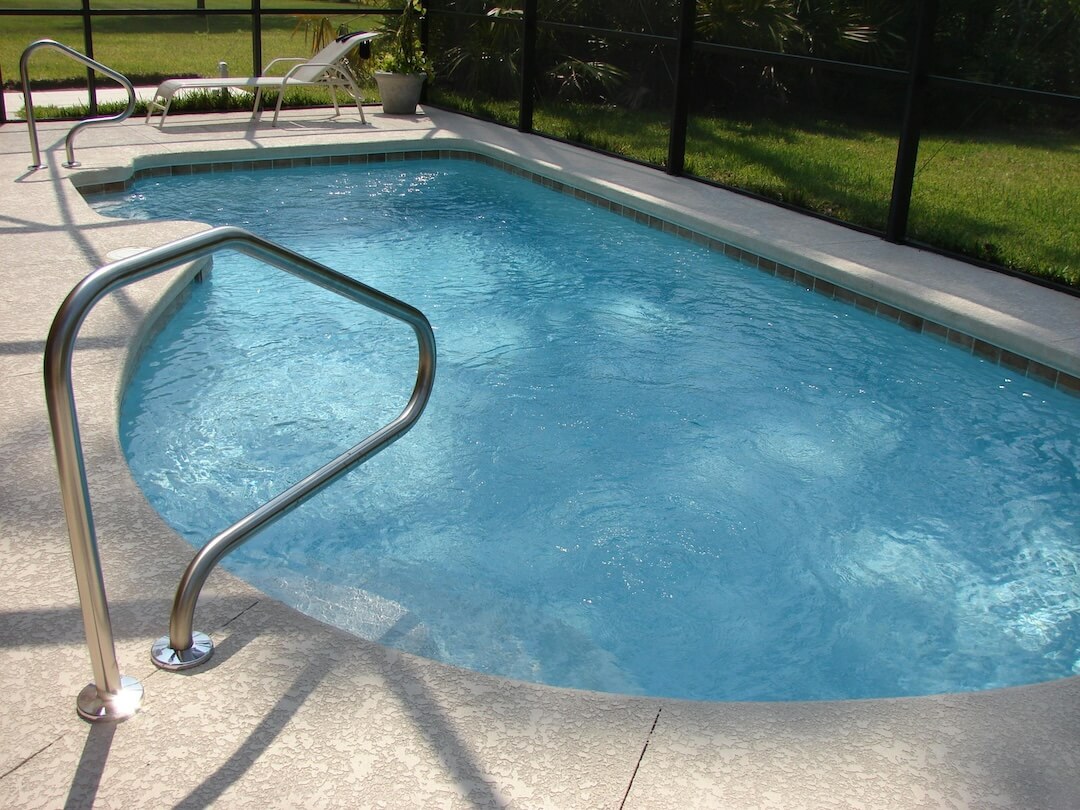How to Prevent Calcium Buildup in Your Pool

How to Prevent Calcium Buildup in Your Pool
Maintaining a pristine, healthy pool in Fort Lauderdale requires more than just regular cleaning; it demands diligent water chemistry management to prevent calcium buildup, which can cause scale, damage equipment, and detract from your pool’s appearance. Calcium deposits, often appearing as white, chalky residues on your pool surfaces and equipment, are a common issue in Florida due to the region’s naturally hard water. Understanding how to effectively prevent calcium buildup is essential for every pool owner in Fort Lauderdale who wants to save on costly repairs and enjoy a sparkling clean pool year-round.
What Causes Calcium Buildup in Pools?
Calcium buildup occurs when calcium carbonate, a mineral naturally found in Florida’s hard water, exceeds its solubility limit in the pool water. When water becomes overly saturated with calcium, it tends to precipitate out of solution, forming solid deposits on the pool's surfaces, pipes, filters, and heaters. Factors contributing to this include high calcium hardness levels, elevated pH and alkalinity, and high water temperature—all common in the warm climate of Fort Lauderdale.
In Florida, the hard water characteristic makes calcium deposits a persistent challenge for pool owners. Without proper water chemistry balance, these deposits not only cause aesthetic issues but can also lead to clogged filters, impaired circulation, and costly equipment repairs. Therefore, proactive measures are necessary to prevent calcium buildup before it becomes a significant problem.
How to Properly Test Your Pool Water
The first step in preventing calcium buildup is regular testing of your pool water. Use high-quality test kits or digital testers available at local pool supply stores in Fort Lauderdale to monitor key parameters:
- Calcium Hardness: Ideally maintained between 200-400 ppm (parts per million). Levels above this threshold increase the risk of scale formation.
- pH Level: Keep pH between 7.2 and 7.6. Higher pH causes calcium to precipitate out of solution.
- Total Alkalinity: Maintain between 80-120 ppm to stabilize pH and prevent fluctuations.
- Cyanuric Acid (CYA): Proper levels help stabilize chlorine but should be monitored to avoid imbalance.
Consistent testing allows you to adjust chemicals promptly, ensuring your water remains within optimal ranges and reduces the likelihood of calcium deposits forming.
How to Adjust Water Chemistry to Prevent Calcium Scaling
Maintaining the correct chemical balance is critical. Here are essential steps:
- Lower pH and Alkalinity: If your pH exceeds 7.6 or alkalinity is too high, use pH reducers like muriatic acid or sodium bisulfate to bring levels down. Keeping pH and alkalinity in the recommended ranges minimizes calcium precipitation.
- Control Calcium Hardness: If calcium levels are too high, consider diluting pool water with softer water sources or using a specialty chemical treatment designed to sequester calcium.
- Use a Sequestering Agent: Commercial sequestrants or metal chelators bind calcium ions, preventing them from forming deposits. Regular application can keep calcium in solution and reduce scaling.
- Maintain Proper Chlorine Levels: Adequate sanitization prevents algae and bacteria growth, which can indirectly contribute to scaling problems.
In Fort Lauderdale, where water tends to be hard, regular chemical adjustments and monitoring are vital to prevent calcium buildup and extend the life of your pool equipment.
How to Use Pool Water Softeners or Reverse Osmosis Systems
For pools with persistently high calcium levels, advanced solutions are available:
- Water Softeners: Installing a water softening system before filling or topping off your pool can significantly reduce calcium content. These systems replace calcium ions with sodium, effectively softening the water and preventing scale formation.
- Reverse Osmosis (RO) Systems: For high-value or commercial pools, RO units can remove calcium and other minerals from the water, providing ultra-pure water that’s resistant to scaling.
While these systems involve upfront investment, they are particularly advantageous for pools in Fort Lauderdale with ongoing issues related to water hardness, helping to prevent calcium buildup in the long run.
How to Regularly Clean and Maintain Your Pool Equipment
Prevention isn’t just about water chemistry; routine cleaning and maintenance are equally important:
- Regular Brushing: Use a pool brush to scrub surfaces weekly, especially at the waterline and corners where scale tends to accumulate.
- Vacuum and Skim: Remove debris and sediments that can harbor mineral deposits.
- Clean Filters and Heaters: Backwash or clean filters regularly and descale heaters and heat exchangers to eliminate calcium deposits.
- Inspect for Scale Formation: Early detection of spots or residues allows for prompt removal before scale becomes severe.
In Fort Lauderdale’s warm climate, consistent maintenance routines help keep calcium deposits at bay and ensure your pool remains inviting and functional.
How to Remove Existing Calcium Deposits
If calcium buildup has already occurred, don’t worry—remediation is possible:
- Use Acidic Cleaning Solutions: Apply diluted muriatic acid or commercial calcium scale removers to affected areas. Always follow manufacturer instructions and wear protective gear.
- Mechanical Removal: For stubborn deposits, gentle scrubbing with a pumice stone or a specialized scale removal pad can be effective.
- Professional Descaling: For extensive buildup, hiring a professional pool service in Fort Lauderdale ensures thorough and safe removal without damaging surfaces or equipment.
Preventing future buildup is crucial, so after removal, focus on adjusting water chemistry and routine maintenance to keep scale from returning.
How to Prevent Calcium Buildup in Your Pool
The most effective strategy to combat calcium buildup in your Fort Lauderdale pool is proactive prevention. Here are comprehensive tips:
- Maintain Proper Water Chemistry: Regularly test and adjust pH, alkalinity, and calcium hardness levels.
- Use Sequestering Agents: Apply pool water stabilizers and sequestrants as part of your weekly maintenance.
- Monitor Calcium Hardness Levels: Keep calcium within the recommended range, and consider water softening or RO treatment if levels are consistently high.
- Maintain Good Circulation and Filtration: Proper water movement prevents mineral settling in specific areas.
- Avoid Overuse of Alkaline Chemicals: Excessive alkalinity and pH can cause calcium to precipitate out.
- Regularly Clean Pool Surfaces and Equipment: Routine brushing, skimming, and descaling prevent deposits from forming.
- Install Scale Prevention Devices: Some pool owners in Fort Lauderdale opt for professional-grade scale prevention systems that continuously monitor and release anti-scale solutions.
By consistently applying these practices, you’ll ensure your pool remains crystal clear, free of unsightly and damaging calcium deposits, and your equipment stays in optimal condition for years to come.
Why Regular Pool Maintenance Is Essential in Fort Lauderdale
In a climate like Fort Lauderdale’s, where high temperatures and mineral-rich water challenge pool maintenance, regular upkeep is crucial. Proper water chemistry management, combined with routine cleaning, significantly reduces the risk of calcium scaling, which can otherwise lead to costly repairs and a less enjoyable swimming experience.
Engaging local pool professionals who understand Florida’s unique water conditions can make a big difference. They can provide tailored advice, water testing, chemical treatments, and descaling services that keep your pool in top shape.
Final Thoughts
In Fort Lauderdale, preventing calcium buildup is an ongoing process that involves diligent water testing, chemical balancing, routine cleaning, and, when necessary, advanced water treatment solutions. By staying ahead of mineral deposits, you protect your investment, extend your pool equipment’s lifespan, and enjoy a beautiful, trouble-free pool environment.
If you notice signs of calcium scaling or want to ensure your pool remains in perfect condition, don’t hesitate to contact our experienced Fort Lauderdale pool maintenance specialists. Our expertise can help you develop a personalized prevention plan, saving you time, money, and frustration in the long run. Keep your pool sparkling and scale-free—your backyard oasis deserves nothing less!



